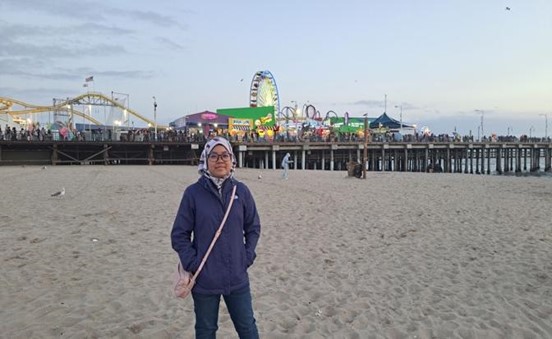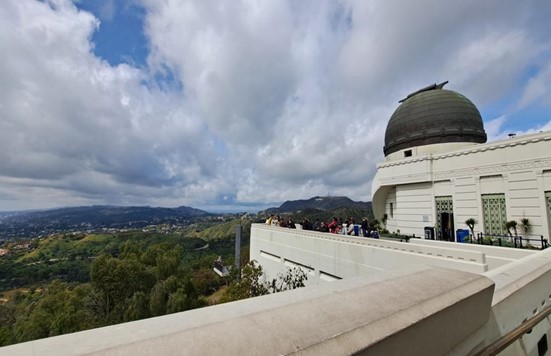By Dr. Adlyka Annuar
Astronomy is a gateway to understanding our place in the cosmos - from ancient stargazers who observed celestial patterns to modern-day explorers delving deep into the mysteries of the universe.
For me, astronomy is not just a scientific discipline; it is a journey of wonder, fascination, and relentless curiosity. It is a deep passion that has sparked a fire, compelling me to reach for the stars and explore realms beyond our earthly boundaries.
A long time ago, in a galaxy far, far away…
I have been dreaming about being an astronomer since I was 13 years old. Unfortunately most, including my parents and teachers, were pessimistic about its lack of career prospects in Malaysia. Undeterred, and conversely so, it fuelled my determination to defy the odds. I made a promise to myself that even if the path ahead proved challenging, I would never look back with regret, knowing that I had given my all to chase my dreams.
I spent more than a decade acquiring knowledge and mastering the skills in this field. Finally in 2018, I obtained a doctorate in Astrophysics, and accomplishments that surpassed even my wildest imagination. These include an award from the National Aeronautics and Space Administration (NASA) USA in 2016 and significant scientific contribution –
discovery of a hidden active supermassive black holes near our galaxy in 2017. Now, I work as an associate professor at
Universiti Kebangsaan Malaysia, with primary expertise in X-ray astronomy, studying some of the most extreme phenomena in our universe, such as black holes.
3 months, 2 continents, 1 mission…
The Merdeka Award Grant research project propelled my study of active supermassive black holes in our cosmic backyard - mainly to determine its true power, using multiple state-of-the art telescopes such as NASA’s
NuSTAR and
Chandra. This area of study is important to provide us with a complete view of the supermassive black holes in our universe and how they impact their host galaxies. This in turn will help us further understand the impact the supermassive black hole in our own galaxy has on the Milky Way.
My research attachment program was divided between the United Kingdom (U.K) and the United States of America (U.S.A). I spent the first two months of my attachment at my alma mater – Durham University, U.K hosted by Prof. David Alexander, my former PhD advisor and Durham’s current Head of Astronomy. The final month was spent at California Institute of Technology (Caltech) hosted by Prof. Fiona Harrison, the Principal Investigator for NASA’s
NuSTAR Telescope; and Dr. Daniel Stern from NASA Jet Propulsion Laboratory, who is the project scientist for
NuSTAR.
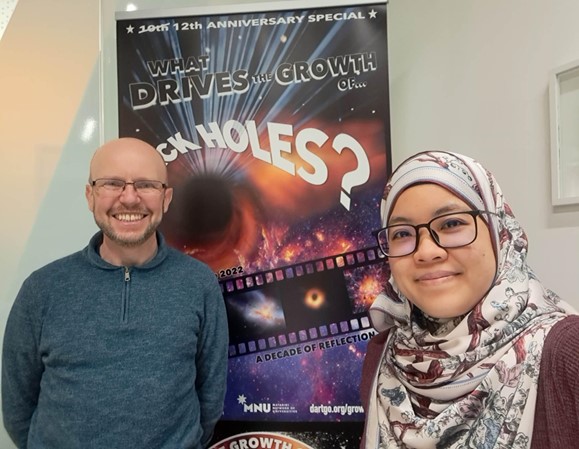
With my hosts, Prof. David M. Alexander
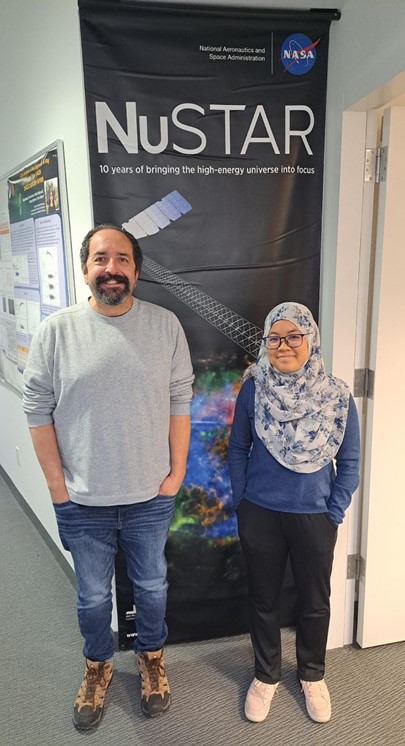
and Dr. Daniel Stern
Both institutions are highly esteemed in the world of astronomy research. Durham University, for instance, was ranked 6th globally for its exceptional quality and influence in space science research (2018). Meanwhile, Caltech is widely known for consistently ranking among the top ten universities in the world. Notably, it boasts an extraordinary association with 79 Nobel Laureates, including renowned figures such as Richard Feynman and Kip Thorne, making Caltech the institution with the highest number of Nobelists per capita in America, and second highest in the world. Additionally, it is also famous for its association with the all-time favourite television sitcom "The Big Bang Theory". Hello Sheldon Cooper!
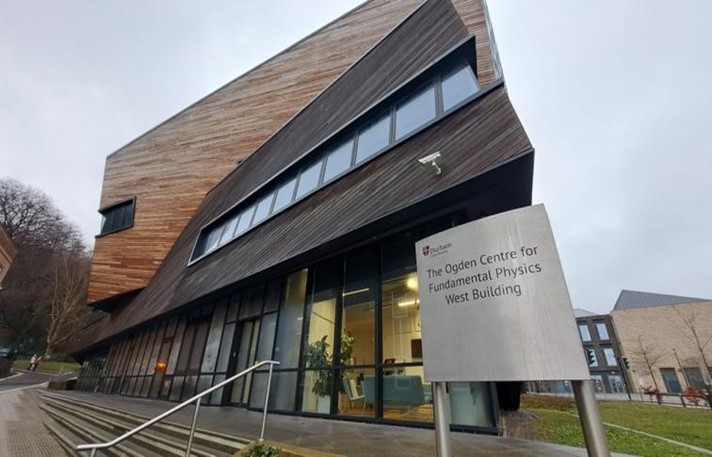
The Ogden Centre for Fundamental Physics West Building
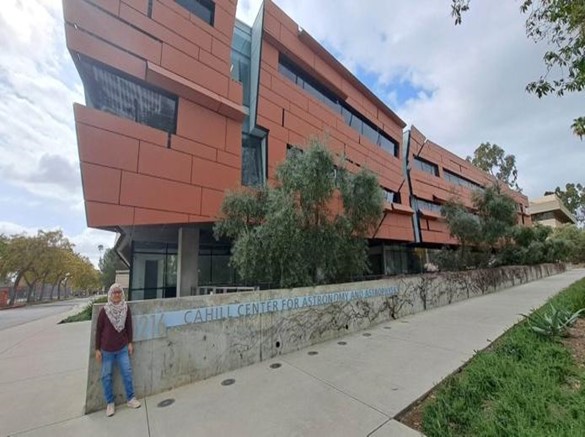
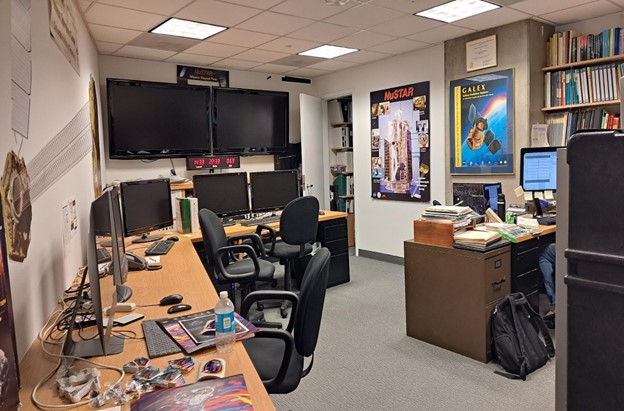
Cahill Center for Astronomy and Astrophysics building (top) where I was based NuSTAR telescope Science Operation Center (bottom).
I spent most of my time doing data analysis, engaging in regular discussions with my hosts and fellow members of these institutions. These interactions not only helped advance my project but also provided valuable networking opportunities. Throughout the attachment period, I enhanced existing and established new collaborations with my colleagues.
I also actively participated in my hosts’ weekly group meetings, and was privileged to present my work and receive constructive feedback. The visits also provided me with the chance to attend astronomy-related talks delivered by local staff and researchers from other institutions whose presentations expanded my knowledge and allowed me to stay abreast with latest developments in the field.
Visits to research laboratories at Durham and Caltech were a highlight. Notably, the facilities involved in the construction and testing of the
NuSTAR telescope left me in awe. I also had the honour of witnessing the
NuSTAR telescope Science Operation Center at Caltech, which gave me a glimpse into the behind-the-scenes operations of this remarkable, cutting-edge astronomical instrument.
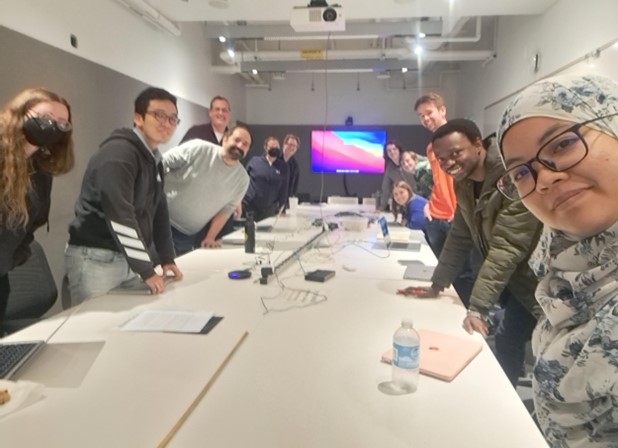
Prof. Fiona Harrison’s NuSTAR telescope group meeting
What’s next?
Through the Merdeka Award Grant, I have been able to advance my career as a research scientist and advance my body of work. The results of my research project have been written in collaboration with the hosts and various researchers from all around the world for publication in a prestigious scientific journal.
An invitation is also waiting for me to be involved in other research and projects such as one of NASA’s potential future missions,
HEX-
P (
High Energy X-ray Probe), led by my host at Caltech, Dr. Daniel Stern.
Best of all worlds…
During weekends and public holidays, I made the most of my time by exploring the surrounding area - including sets of the popular television series "The Big Bang Theory" in Pasadena, and those associated with the Harry Potter films in Durham, as well as trips to Hollywood and Disneyland California!


Top: Durham Cathedral that was featured in the first two Harry Potter films and Avengers Endgame. Bottom: View of the River Wear, Durham Castle and Cathedral – both are UNESCO World Heritage Sites.

Around Pasadena town, California. Home of the Big Bang Theory TV Series.
Why is Astronomy important?
I often get asked how does studying black holes help developing countries like ours? Often, blue-skies research such as astronomy is often regarded as “useless” and deprioritised.
However, this field has been shown to contribute significantly to our economy, society and much of the technology that we use today; in our phone cameras, GPS and Wi-Fi, to airport security and medical applications have strong origins in the study of astronomy. In the past 5 years alone, almost half of the Nobel Prizes in Physics were awarded to astronomy-related breakthroughs. This demonstrates the importance and contribution of this field to advancing our knowledge as a human race, and the need for deep technology research to push our boundaries - on earth or beyond.
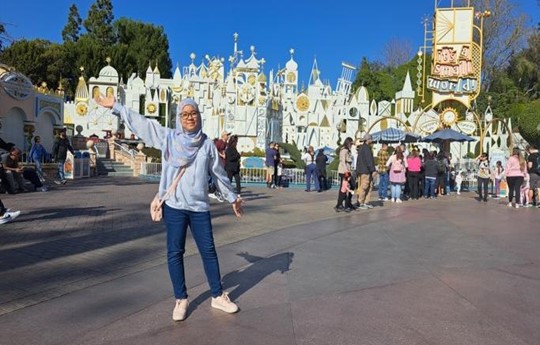
No visit is complete without a trip to Disneyland California, Santa Monica Pier!
